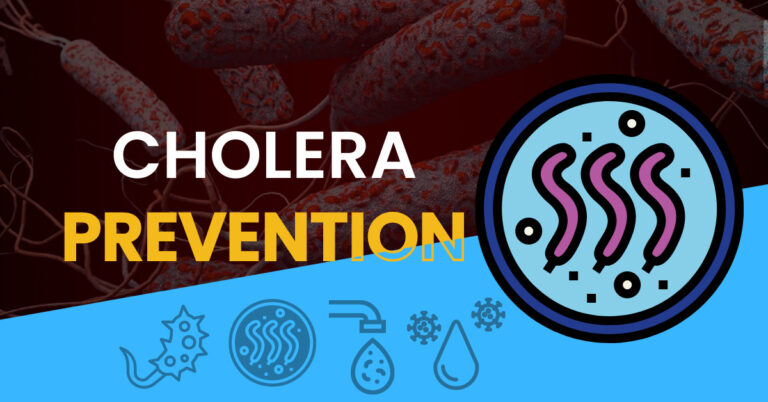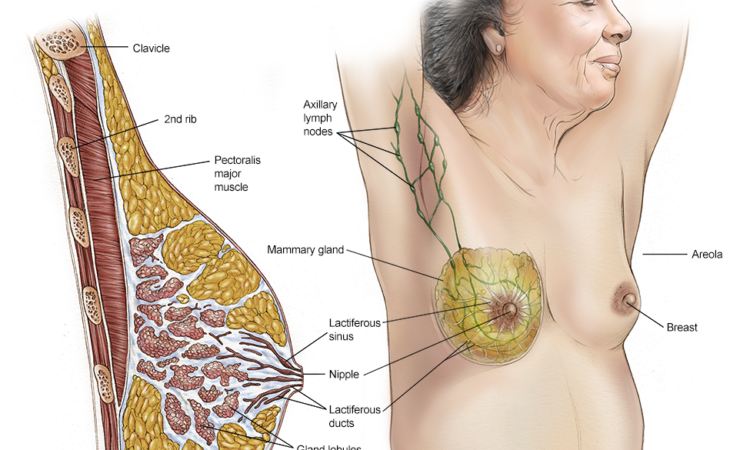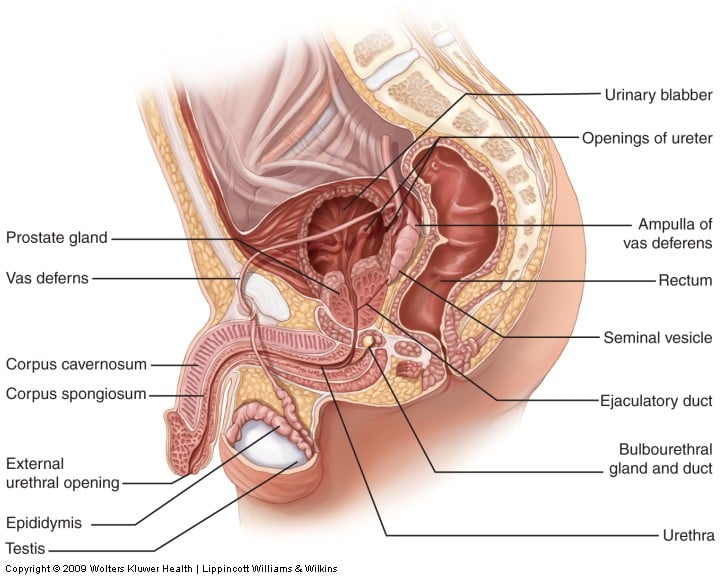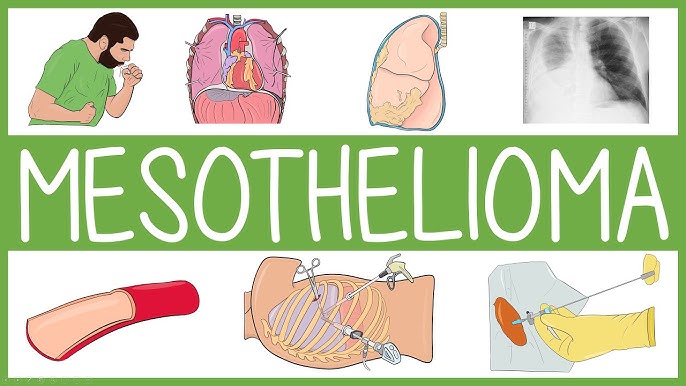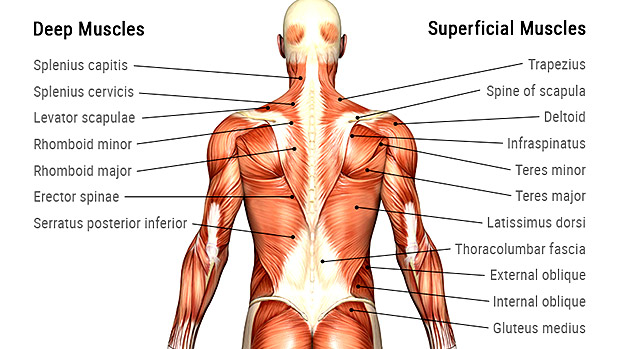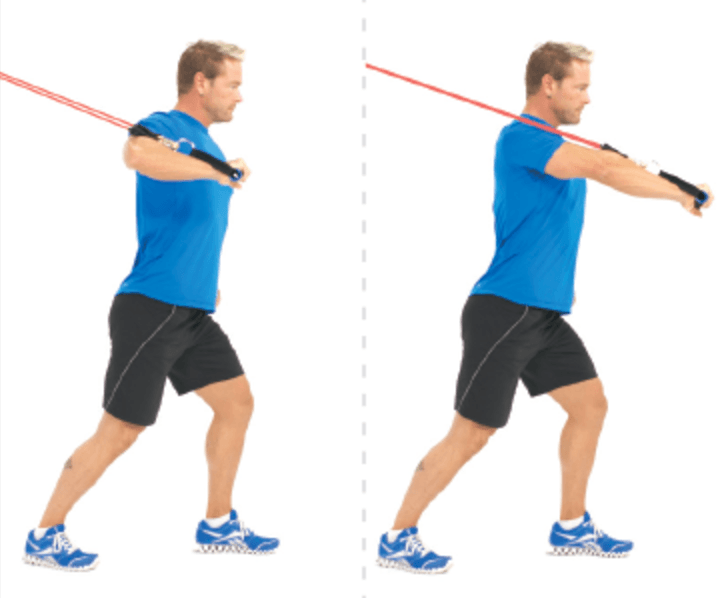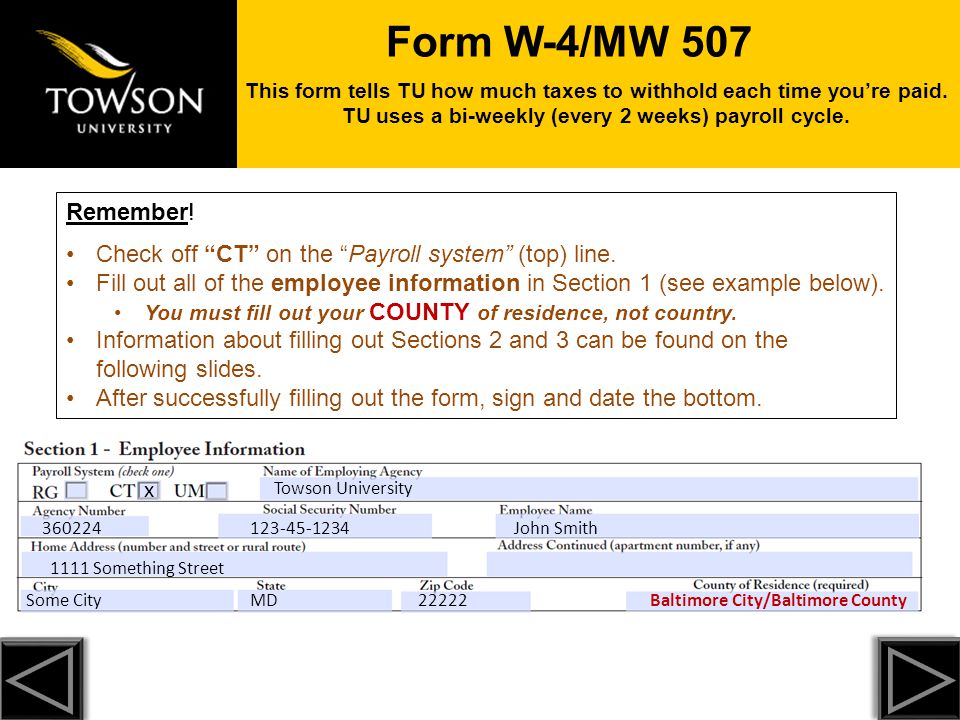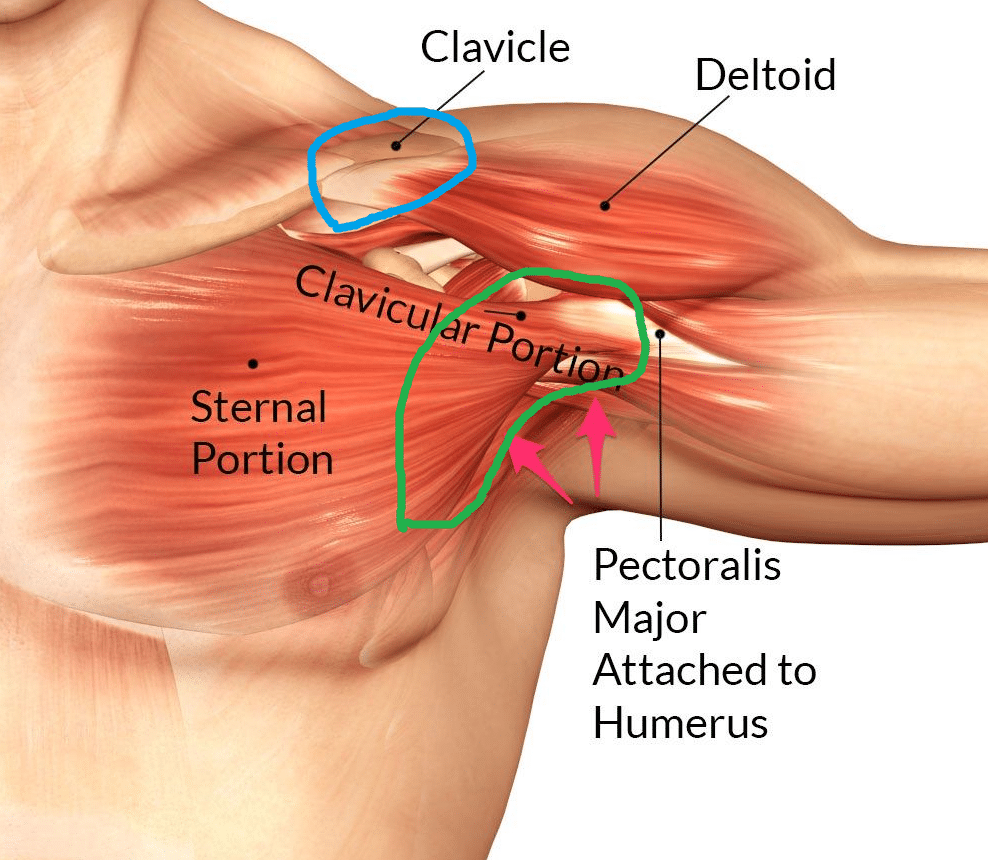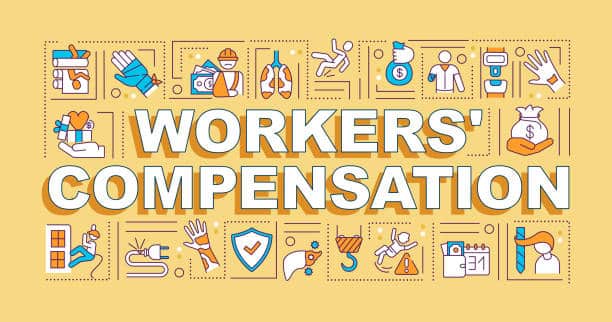
Due to the Covid-19 pandemic, patients’ interest in the subject of pneumonia has increased significantly. Treatment of pneumonia usually involves empirical antibiotic therapy (effective against the most likely pathogens, egStreptococcus pneumoniae) or targeted (selected on the basis of an antibiogram) and supportive therapy.
In this article, Niketrainers.com.co will tell you:
What is pneumonia and what are its forms?
Pneumonia is inflammation affecting the air sacs in the lungs or the interstitial tissue. For practical reasons, we divide pneumonia into community-based (environmental, in patients who are not in hospital) and hospital-based (in patients staying in hospital> 48 hours). This division is important due to the different etiological factors causing pneumonia in community and inpatient settings. The bacteria that causes 30–40% of community-acquired pneumonia isStreptococcus pneumoniae. The most dangerous form ofS. pneumoniae infectionis invasive pneumococcal disease, i.e., pneumonia with bakeremia (the presence of bacteria in the blood).
Diagnosis is based on symptoms (history), symptoms (examination) and radiological symptoms (most often from an X-ray image). Typical symptoms reported by patients arecough, often with the production of purulent sputum,chest pain(usually located not behind the breastbone but in the lateral parts of the chest, and worsening with deep breathing or coughing), anddyspnoeain some patients . Additionally, systemic symptoms such as sweating, chills, muscle pain or body temperature ≥38 ° C are usually present. Pneumonia caused byS. pneumoniaeis most often associated with a highfever, pleural pain, productive cough and shortness of breath. In elderly people, pneumonia may be mildly symptomatic, without fever, but with weakness and deterioration of contact.
In a physical examination with chest percussion and auscultation, symptoms are found over a specific area of the chest. To confirm the diagnosis, achest X-rayis usually performed , which shows the shading of part of the lung parenchyma). Laboratory tests typically show leukocytosis (an increase in the number of white blood cells, most of which in pneumonia are neutrophils) and an increase in CRP (a protein whose levels increase in many inflammations).
Treatment of pneumonia depends on the suspected etiology. Antibiotic (s) are used to treat bacterial pneumonia and are usually given for about 7 days. The risk of death from community-acquired pneumonia in patients who do not require admission to hospital is less than 1%.
Pneumonia is a very common disease. Due to the large differences, the epidemiology of community-acquired and nosocomial pneumonia should be discussed separately.
Epidemiology of nosocomial pneumonia
The risk of pneumonia in a person admitted to hospital is estimated at 5–15 cases per 1,000 hospitalizations. The risk is much greater in those who are critically ill and those who are mechanically ventilated in intensive care units. The risk of pneumonia in the latter is estimated at 15% during the first 5 days of mechanical ventilation, 10% during the next 5 days, and 1% for each subsequent day of mechanical ventilation. This means that if a patient is artificially ventilated for 2 weeks, the risk of pneumonia is around 25%, i.e. 1 in 4 people will develop pneumonia! This high risk is associated with two factors:
- mechanically ventilated persons are usually very seriously ill and their natural immunity is lowered
- the insertion of an endotracheal tube into the trachea, necessary for invasive mechanical ventilation, disrupts the natural mechanisms ensuring the sterility of the lower respiratory tract (i.e. the trachea and bronchi) and promotes the entry of bacteria into them.
Factors that increase the risk of disease by promoting colonization by drug-resistant bacteria:
- antibiotic therapy within the last 90 days
- hospitalization time ≥5 days
- hospitalization for ≥2 days within the last 90 days
- stay in a care institution or in a long-term care home
- administering IVmedications at home (including antibiotics)
- chronic dialysis therapy for 30 days
- treatment ofthe woundat home
- immunosuppressive therapy or an immunocompromised disease.
Epidemiology of community-acquired pneumonia
The annual number of cases in Europe is estimated at around 5-12 per 1000 people. Comparing these data to the population of Poland, it can be assumed that at least 300,000 people suffer from illness each year. Among the elderly (> 75 years of age) the incidence is much higher, according to the available data, 34 cases per 1000 people.
Risk factors for the onset of the disease include:
- old age
- smoking tobacco
- chronicheart failure
- chronic obstructive pulmonary disease (COPD). Among patients with COPD, the risk of pneumonia is slightly increased in patients treated with inhaled glucocorticoids. This does not mean, however, that drugs from this group should not be used in patients with COPD, because in people who have indications to take them, the benefits of treatment outweigh the slightly increased risk of pneumonia!
- diabetes
- the use of drugs that reduce immunity. The most commonly used drugs from this group are oral glucocorticosteroids, administered, for example, in the most severe cases of bronchialasthmaor in patients with autoimmune diseases. Other medicines that affect the risk of pneumonia include, for example, preparations used after organ transplants
- poor oral hygiene and extensive tooth decay (these conditions promote the development of a bacterial flora in the mouth that can cause pneumonia; most cases of pneumonia are caused by bacteria that reside in the upper respiratory tract and throat)
- work in conditions of exposure to metal dust
- intoxication and other conditions that increase the risk of aspiration (e.g. drug poisoning, drug use,impaired consciousness, certain diseases of the nervous system)
- both malnutrition and overweight and obesity
PZP is a year-round disease, but its incidence is highest in winter.
Criteria for the diagnosis of pneumonia
Criteria to define community acquired pneumonia diagnosed in open treatment:
- symptoms of acute lower respiratory tract infection (cough and ≥1 symptom: dyspnoea, pleural pain,haemoptysis)
- new localized symptoms on physical examination of the chest
- ≥1 of systemic symptoms (sweating, chills, myalgia or body temperature ≥38 ° C)
- there is no other explanation for the symptoms found.
In Poland, it is recommended to confirm the diagnosis by meansof a chest X-ray(see below).
Community-acquired pneumonia in hospitalized patients is diagnosed on the basis of:
- signs and symptoms suggestive of acute lower respiratory tract infection
- presence of unprecedented shading on a chest X-ray that cannot be otherwise explained (e.g. pulmonaryedemaor pulmonary infarction)
- because of these symptoms the patient is admitted to hospital or they occur within 48 hours of admission.
Nosocomial pneumonia (HAP) is an inflammation of the lungs that occurs 48 hours after admission to the hospital in a patient who was not intubated on admission.
Ventilator-associated pneumonia(VAP) is pneumonia that has occurred> 48 hours after the initiation of invasive mechanical ventilation.
The causes of pneumonia
The causes of pneumonia vary between community and nosocomial pneumonia, and even the microbial flora and its resistance to antibiotics vary between hospitals.
Hospital-acquired pneumonia
Sources of microbes are healthcare equipment, the environment (air, water, equipment and clothing), and the transmission of microbes between patient and staff or other sick people.
- during the first 4 days of hospitalization – the same bacteria that cause community-acquired pneumonia (CAP) and gram-negative bacilli (E. coli,K. pneumoniae,Enterobacter,ProteusandSerratia), but retained sensitivity to antibiotics
- from the 5th day, multi-drug-resistant strains dominate, most often aerobic Gram-negative rods:P. aeruginosa,E. coli,K. pneumoniae,Acinetobacter spp.andL. pneumophila, and among Gram-positive bacteria mainlyS. aureus, whose hospital strains may be methicillin resistant.
Community acquired pneumonia
Community acquired pneumonia is most often caused by Neoclassical Pneumonia,Streptococcus pneumoniae. The other bacteria that cause this disease are:Mycoplasma pneumoniae,Chlamydophila pneumoniae,Legionella pneumophila, andHaemophilus influenzae.
For the so-called atypical microorganisms are:Mycoplasma pneumoniae,Chlamydophila pneumoniae,Legionella pneumophila. Pneumonia caused by infection with these bacteria more often has an atypical clinical picture: fever is less severe and symptoms outside the respiratory system are more common.
Other bacteria are responsible for a small percentage of community-acquired pneumonia (includingStaphylococcus aureus,Klebsiella pneumoniae,Escherichia coli, and anaerobic bacteria). Viral infections cause up to 1/3 of community-acquired pneumonia cases, but the clinical picture is not always typical then.
Respiratory viruses (influenzavirus , parainfluenza, coronavirus,adenovirus, etc.) are responsible for approximately 30% of cases of CAP. In immunocompromised patients, pneumonia can also be caused by other viruses as well as fungi (egAspergillus fumigatus,Candida albicansandPneumocystis jirovecii).
In up to 40% of patients it is impossible to identify the etiological factor of pneumonia.
Pneumonia – treatment
Antibiotic therapy
The mainstay of treatment for pneumonia is the use of an antibiotic. Its choice is at the discretion of the doctor. People who are allergic to antibiotic (s) or have had adverse reactions to antibiotic use should be sure to tell their doctor. For the treatment of pneumonia at home, except in exceptional cases, antibiotics are taken orally.
In the hospital, this group of drugs is administered orally or intravenously (sometimes intramuscularly) depending on the patient’s condition. The antibiotic is usually used for 7 days. In cases of suspected infection with atypical microorganisms or in some severe cases of infection with other bacteria, the treatment may be extended to 14–21 days.
The antibiotic should be taken as directed by the doctor. If possible, try to maintain a similar time interval between successive doses, i.e. take the drug at the same time. Information on whether the drug should be taken on an empty stomach, with or after meals may vary from preparation to preparation, and should be consulted in the package leaflet (for many antibiotics no specific recommendations are available).
Since antibiotics lead to the disappearance of the natural intestinal flora, it is worth taking medications containing bacteria that complement the natural intestinal flora (e.g. Lakcid, Laktoforte, Latopic, Linex, Nutrilac, Nutriplant, Probiolac, Prolactiv, Quatrum, Trilac).
The most common side effects of antibiotics are gastrointestinal symptoms, especiallydiarrhea, less commonly abdominal pain, nausea, vomiting. These symptoms occur in a high percentage of patients using antibiotics. Symptoms of allergy appear less frequently, most often manifested by a rash. If you experience side effects from treatment, contact your doctor who will assess their severity and the need to stop taking the drug or change to another drug. If during the use of an antibiotic you experience: sudden shortness of breath, disturbance of consciousness, very extensive skin changes with a feeling of weakness,dizzinessor difficulty breathing, you should urgently call an ambulance, as these may be symptoms of a life-threatening allergic reaction.
Hospital-acquired pneumonia
During the first 4 days of admission, most patients who develop pneumonia are caused by bacteria similar to those in community-acquired pneumonia. After this period, the cause of the disease is more often the strains of bacteria “residing” in a given hospital. They are often resistant to many antibiotics. Despite many years of research and efforts, it is impossible to eliminate nosocomial infections in the current state of medical knowledge. These bacteria includePseudomonas aeruginosa(blue oil rod), hospital strains ofEscherichia coli,Klebsiella pneumoniae, species of the genusAcinetobacter,Legionella pneumophila,Staphylococcus aureus(strains resistant to antibiotics, the so-called MRSA, i.e.methicillin-resistant Staphylococcus aureus).
Pneumonia in mechanically ventilated patients
This is pneumonia that develops 48 hours after intubation and the start of mechanical ventilation. The disease is caused by bacteria that cause nosocomial pneumonia.
Pathomechanism of pneumonia: symptoms, tests, diagnosis
Community-acquired pneumonia is most often caused by bacteria that constantly reside in the human upper respiratory tract. In the case of the most common etiological agent,Streptococcus pneumoniae, the presence of bacteria in the nasopharynx is found in approximately 50% of adults. However, pneumonia is often associated with infection (most often by airborne droplets) with a serotype that is not constantly present in the patient’s upper respiratory tract. The natural defenses of the organism mean that the lower respiratory tract (which begins below the vocal cords, i.e. the trachea and bronchi) are normally sterile (no bacteria present in them).
Microorganisms enter the lower respiratory tract, most often as a result of microaspiration, when particles of secretion are aspirated into the respiratory tract during inhalation. Larger drops of secretion cause coughing, smaller ones are removed due to the action of the cilia covering the bronchial mucosa. Bacteria are killed by the macrophages in the lungs. However, under favorable conditions (e.g. when the immune system is weakened), the bacteria survive. They reproduce in the alveoli. The body defends itself – inflammation develops in the lung parenchyma. The permeability of the walls of the blood vessels surrounding the vesicles increases. Their lumen is filled with protein-rich fluid and numerous leukocytes, mainly neutrophils. However, the infection usually spreads further, typically involving all or part of the lobe of the lung. The purulent content filling the vesicles and small bronchi, containing bacteria, neutrophils and remnants of dead cells, stimulates the cough. If the inflammatory process is close to the surface of the lung, the lesions also affect the pleura – the connective tissue membrane that covers the lung. Unlike the lungs themselves, it is also innervated by pain-sensing neurons. Deep breathing or coughing causes friction between the pleura that covers the lung (pulmonary) and the pleura that lines the inside of the chest (parietal pleura). This causes severe pain. Fluid can build up in the pleura and sometimes becomes infected. Substances entering the bloodstream from the site of an inflammatory process cause fever, malaise and a feeling of crash. In the affected parts of the lungs, air sacs responsible for gas exchange, they are filled with fluid and do not fulfill their role. If the changes are extensive, the patient experiences shortness of breath. In severe cases of infection with some strains of bacteria, parts of the lungs may be completely destroyed – spaces filled with pus are formed, i.e.lung abscesses(most often in the course ofS. aureusandK. pneumoniae infections).
Using the right antibiotic kills bacteria that multiply in the lungs quickly. Their remnants are removed by inflammatory cells. The symptoms subside gradually (usually within 1-2 days) and the patient slowly recovers. It takes longer to restore normal function of the affected part of the lung, and changes in the radiograph are sometimes visible even after 1-2 weeks or more.
Symptoms of pneumonia
Typical symptoms of pneumonia are fever, chills, sweating, a feeling of breakdown, cough with the production of purulent (yellow) sputum, chest pain (most often located in the side parts of the chest and worsening with deep inhalation and coughing).
In more severe cases, pneumonia is accompanied by shortness of breath. The symptoms are usually acute. In the elderly (> 70 years of age) these symptoms (fever, cough) may be much less severe. In patients with pneumonia caused byMycoplasma pneumoniaeandChlamydia pneumoniae, symptoms increase more slowly, sometimes withsore throatandhoarseness, and in viral infections also withrhinitisor muscle aches and a feeling of discomfort (in the case of flu).
In patients with pneumonia caused by Legionella pneumophila infection, in addition to the typical symptoms of pneumonia ,headache, muscle pain and gastrointestinal symptoms (nausea, vomiting, abdominal pain) are common. However, it should be emphasized that on the basis of clinical symptoms alone, even an experienced physician is not able to say with certainty about the cause of pneumonia.
Tests
Dig. 1.Pneumonia
Chest radiograph
The basic examination for the diagnosis of pneumonia, assessment of its extent and the presence of certain complications is the chest radiograph. In typical cases, the radiograph shows infiltrative changes – solid shading (the radiographic film is negative, therefore “shading” defines the bright area in the picture), which is often limited to one lobe of the lung. Sometimes the changes may be bilateral (if they cover large areas of both lungs, it is one of the indications for admission to the hospital). The photo sometimes shows pleural fluid (a large amount of it is also an indication for hospitalization) and lung abscesses, which usually indicate a severe course of pneumonia (they are always an indication for hospitalization). Attention! Never interpret an x-ray image yourself.
A chest radiograph is also a valuable follow-up examination. The doctor decides whether to repeat it, because it is not always necessary. Radiographic changes after pneumonia may persist for several weeks. Therefore, there is often no need for post-treatment x-rays even in hospitalized patients.
More about the study:Chest radiograph
Computed tomography
In doubtful cases, a chest CT scan is indicated. This examination is performed less frequently, mainly in hospitalized patients. It is not necessary for the diagnosis of pneumonia and is most often used in the differential diagnosis.
More about the study:Computed tomography of the chest
Laboratory tests
They are recommended for all patients admitted to hospital with suspected pneumonia. The doctor may also order them for patients who will be treated at home. The most frequently performed tests are:
- morphology– there is usually an increase in the number of leukocytes, i.e. white blood cells, among which neutrophils (neutrophils) predominate. A worrying symptom is leukopenia, i.e. a decrease in the number of leukocytes below 4000 / mm3, which fortunately occurs quite rarely. Sometimes the disease is caused by a significant degree of leukopenia, eg after chemotherapy, which impairs the antimicrobial defense;
- CRP, orCreactiveprotein, is one of the proteins produced by the body under the influence of inflammation. Its concentration in patients with pneumonia is usually significantly increased. This test is non-specific – a wide variety of diseases are found to have increased CRP levels;
- urea and creatinine levels– allow you to assess kidney function. The examination is important for admission to hospital, as people with renal impairment usually require hospitalization;
- bilirubin levelsandliver enzymes(most often AST and ALT) – tests are used to assess liver function and detect possible impairment of this organ function. Performing these tests before starting treatment can also help determine whether liver damage was present before treatment or if it is a complication of treatment (some antibiotics may adversely affect liver function).
Bronchoscopy
It is most often used in patients with severe or nosocomial pneumonia. The most important role of the test is to collect material from the lower respiratory tract for bacteriological examination.
Bacteriological examination of sputum
It allows for the presence of bacteria and their identification. Sputum culture is often of limited value because even the sputum of healthy people can grow many bacteria that cause pneumonia. The examination is most often performed in patients admitted to the hospital.
Blood culture
Under normal conditions, blood is sterile, therefore the presence of bacteria in the blood of a patient with pneumonia confirms that the cultured microorganism is the cause of pneumonia. However, bacteria in the blood are found in no more than 1/3 of cases of pneumonia, so this examination does not always allow for diagnosis. Blood is usually sampled several times for testing, usually when the patient has a fever.
Tests for the detection of bacterial antigens
Tests are now available that allow the quick identification of several species of bacteria, incl. the most common pneumonia causingStreptococcus pneumoniaeandLegionella pneumophila. The test is performed in a urine sample.
Immunological research
Confirmation of the presence of some viruses and atypical bacteria, such asMycoplasma pneumoniaeandChlamydia pneumoniae, requires blood sampling twice, approximately 3 weeks apart, to find that the antibody titer against these microorganisms is increasing.
Flu virus tests
These tests are performed when it is suspected that a flu virus infection is responsible for the disease. In practice, tests to detect influenza antigen are used (they are quick, but not all infected patients show positive results, i.e. they have low sensitivity) and genetic testing (RT-PCR), which is a more accurate method.
Tests for SARS-Cov-2
Currently available tests that allow testing for SARS-Cov-2 infection are molecular (genetic) tests, serological tests (quantitative, qualitative) and antigen tests. Molecular tests detect viral genetic material byreal time PCR(Reverse Transcriptase Polymerase Chain Reaction) in nasopharyngeal swab material (preferred site). Rapid antigen tests detect SARS-CoV-2 protein particles (antigens) in nasopharyngeal swab specimens. Serological tests for the detection of IgM and IgG antibodies are not recommended in detecting the current infection.
Diagnosis of pneumonia
The diagnosis of pneumonia is made by a physician based on clinical symptoms, the results of a physical examination, and changes on the chest radiograph. Some clinical management guidelines (e.g. British Thoracic Society guidelines) allow diagnosis of the disease on the basis of symptoms and physical examination results, without the need for a chest radiograph.
Supportive treatment for pneumonia
You must not go to work during pneumonia. It is recommended to rest and drink plenty of fluids, especially if the patient has a fever. The patient is not allowed to smoke. People who have difficulty coughing up mucus may use drugs to help them cough up, such as mucosolvan or acetylcysteine preparations. In most cases, antitussive drugs that suppress the cough reflex are contraindicated. In case of chest pain, paracetamol can be used, temporarily 0.5–1 g (1-2 tablets).
The course of pneumonia
Pneumonia in patients who do not require admission to hospital usually disappears quickly with effective antibiotic therapy. In patients whose condition is severe enough to require admission to hospital, prognosis is not so favorable. The risk of death depends both on the etiology, severity of pneumonia and the presence of comorbidities, and depending on age, it may vary from several to several percent. Nosocomial pneumonia (that is, 4 days after admission to hospital) is associated with a higher risk of death, ranging from approximately 10% to 30-40% in patients who developed pneumonia while in the intensive care unit therapy.
Why do I have to stay in the hospital, i.e. about the indications for hospitalization
The doctor decides about hospitalization based on the patient’s clinical condition and the results of the chest radiograph and additional tests. Indications for admission to hospital include:
- respiratory failure, which is a condition in which the lung function is impaired so much that the oxygen supply to the body is insufficient. It usually occurs in very massive pneumonia
- bilateral, extensive inflammatory changes
- complications such as a lung abscess or a pleural empyema
- kidney or liver failure
- disturbances of consciousness
- low blood pressure.
Complications after pneumonia
Pleural fluid and pleural empyema
In the course of pneumonia,fluid appears relatively frequently in the pleural cavity, i.e. between the lung and the chest wall. If more fluid has accumulated in the pleura, it must be removed and collected for examination. A pleural puncture is performed by puncturing the fluid with a needle through the chest wall. Fluid may be caused by an inflammatory reaction of the pleural membrane that covers the lung to an inflammatory infiltrate and may not contain bacteria. The fluid itself is then clear and yellowish, while when bacteria appear in it, it soon becomes purulent, cloudy, purulent and often foul-smelling. Then it is necessary to insert a drain into the pleura, i.e. a tube about 1 cm thick, which facilitates the removal of purulent contents from the pleura (see:Pleural drainage). Drainage takes at least a few days. In addition, antibiotics are used for a longer time than the standard.
Lung abscess
Dig. 2.Pneumonia complicated by abscess
The development of a lung abscess occurs when, as a result of infection with certain species of bacteria (most often Staphylococcus aureus andKlebsiella pneumoniae), the lung is almost completely destroyed locally. A cavity of a few centimeters is formed, filled with purulent contents. Abscesses can be single or multiple. Treatment consists of long-term (usually several weeks) antibiotic treatment to which the disease-causing bacteria are susceptible. Rehabilitation is helpful in the treatment, which facilitates the evacuation of purulent contents from the abscess cavity, especially postural drainage, consisting in lying for a certain time in a specific body position (depending on the location of the lesions, e.g. on the side, with the lower half of the torso raised, etc.).
Ways to prevent pneumonia
Prevention of community acquired pneumonia
Following a healthy lifestyle and not smoking are the basic methods of preventing respiratory infections that everyone should use. Good oral hygiene also reduces the risk of pneumonia. The publicly available flu vaccine also protects against pneumonia caused by infection with the flu virus. This vaccine can and should also be used by people without any chronic disease who want to reduce their risk of catching the flu. Likewise, vaccination against COVID-19 reduces the risk of severe disease.
A vaccine againstStreptococcus pneumoniaeis also available , mainly for people at increased risk of developing pneumonia, such as immunocompromised people, elderly people in nursing homes, and patients with chronic diseases.
Prevention of nosocomial pneumonia
For many patients and their families, the fact that a patient hospitalized for another reason developed pneumonia in the hospital is often a shock. It seems strange that in the 21st century we are unable to eliminate nosocomial infections. Unfortunately, medicine is not only unable to eliminate the various infections that occur in hospitals, but it turns out that they are one of the most common complications of treatment. This state of affairs has several reasons. Bacteria are common. It is impossible to eliminate them in the entire hospital. Even the use of disinfectants will not eliminate bacteria completely.
We often hear the questionwhy, therefore, in all patients admitted antibiotics are not used prophylactically?Unfortunately, in the long run, doing so would be lethal. Massive use of antibiotics leads to the emergence of treatment-resistant strains, which in some cases are resistant to most antibiotics known to medicine!
For similar reasons, in many countries, including Poland, measures are taken to eliminate unnecessary prescription of antibiotics, which causes the emergence of multidrug-resistant bacterial strains in the population. After all, bacteria in a hospital are both transmitted by hospital staff (100% unavoidable, even with strict adherence to strict rules) and brought from outside by visitors to the sick. Another cause of frequent nosocomial infections is immunodeficiency, common among hospitalized people, and the possibility of transmitting bacteria from one patient to another. To reduce the risk of nosocomial pneumonia, it is important that you and your family follow instructions from hospital staff.For the inquisitive
History of pneumonia research
Pneumonia is a disease with a characteristic clinical picture, long known in medicine. The doctors of ancient times (eg Hippocrates) and the Middle Ages (eg Mojżesz Moimonides) presented the exact clinical picture of pneumonia in their writings in accordance with contemporary observations. While the clinical picture has been known to medicine for a long time, the etiology remained unknown and was the subject of speculation consistent with the state of knowledge at the time.
The development of bacteriology in the 19th century led to the discovery of numerous pathogenic microorganisms and the explanation of the causes of many diseases. Louis Pasteur was a pioneer in this field. Before discovering the cause of pneumonia, in 1830 Pasteur’s work concerned fermentation first – the scientist showed that it was a process caused by yeast, and not astrictlychemical reaction, as previously thought. He later proved that bacteria or other microorganisms are the cause of many diseases in animals and humans. This idea – then a breakthrough – was proven and widely accepted thanks to Pasteur, which resulted in enormous progress in medicine. Among the bacteria discovered by Pasteur was a bacterium that causes pneumonia, grown from sputum in 1880.
At the same time, a similar discovery was made by an American physician, George Miller Sternberg, who, interestingly, named the microorganism he described after PasteurMicrococcus pasteuri. It wasn’t until many years later that it turned out to be the same species of bacteria that we now callStreptococcus pneumoniae. Unfortunately, the discovery of the most common cause of pneumonia did not quickly lead to the development of an effective drug, and in the 19th century pneumonia was a disease that often ended in death.
A breakthrough in the treatment of diseases caused by bacteria, including pneumonia, was the discovery of penicillin by Alexander Fleming. The often quoted history of this discovery is an example of the role of chance and the importance of the scientist’s perceptiveness at the same time. Fleming, while washing the dirty laboratory utensils, noticed that mold had started to grow in one spot on a dish covered with bacterial colonies. Around the area where the mold was taken, there was a zone where the bacteria apparently were unable to grow. The scientist hypothesized that mold produces a substance that is lethal to bacteria. Only after about 10 years, in 1938, a group of three scientists, including Fleming, isolated penicillin – the first antibiotic. The name of the drug comes from the name of the mold of the genusPenicillium. Penicillin was soon introduced into treatment and saved the lives of many soldiers during World War II, and its discoverers were awarded the Nobel Prize in 1945.
Causes: not onlyStreptococcus pneumoniae
Streptococcus pneumoniaeis the most common, but not the only, cause of pneumonia. The study of many more other microbes continued over the years – until today, as new microbes that can cause this disease are still being described. An event from 1976 is recorded in the history of medicine, when during the congress of the American Legion (an organization associating veterans of wars in which the United States participated) there was an epidemic of pneumonia, which resulted in the death of 29 people. Intensive research soon led to the discovery of a bacterium calledLegionella pneumophilawhich has been found to be responsible for a significant percentage of community-acquired pneumonia. Pneumonia-related observations also led to the discovery of AIDS in 1981–1982. In 1981, the U.S. government’sCenters for Disease Control and Preventionnoticed an inexplicable increase in pneumonia caused by infection with the microorganismPneumocystis carinii(it was believed to be a protozoan then, but it is an atypical fungus, now calledPneumocystis jirovecii).
The search for the causes of these diseases partly led to the description of theacquired immunodeficiency syndrome(AIDS) and the subsequent discovery of its causative agent,HIV infection. It wasn’t until 1989 that a paper was published describing a bacterium calledChlamydia pneumoniae, one of the common causes of pneumonia.
In 2002, there were numerous cases of pneumonia caused by an unknown etiological factor in China. The disease was referred to as SARS. The virus causing SARS was identified in 2003. One of the people who alerted WHO was an employee of the organization, Dr. Carlo Urbani, who himself died as a result of the infection. The spread of the virus to other countries was caused, inter alia, by the Chinese government’s policy of concealing information about the epidemic. Fortunately, since 2004 we have not recorded any cases of illnesses caused by this virus.
The first cases of severe pneumonia caused by SARS-Cov-2 were reported in the city of Wuhan in December 2019. The World Health Organization (WHO) announced the COVID-19 pandemic on March 11, 2020.
